- Saturday, April 19, 2025
The top official said India has strong constitutional and statutory bodies that promote human rights and their contribution towards making lives of every Indian citizen better cannot be underestimated.
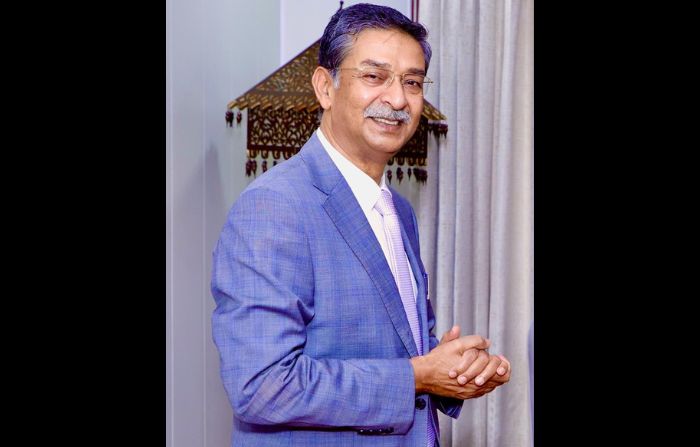
By: Shubham Ghosh
THE concept of human rights has remained ever significant with the progress of human civilisation. They are the basic rights and freedom that are guaranteed to all people irrespective of race, gender, religion, nationality or any other determinant. Such rights are shielded by international law and many national constitutions and are seen as critical for promoting socio-political ideals such as dignity, equality and justice.
A number of western nations have adopted declarations on human rights over the centuries that are considered milestones, including the Magna Carta (1215), the French Declaration of Man and Citizens (1789), and the United States Bill of Rights (1789). Three years after the Second Great War (1939-45) concluded, the Universal Declaration of Human Rights (UDHR) was adopted by the newly formed United Nations.
India too has not been far behind when it comes to protecting and promoting human rights. Etched in the ancient Indian culture and its Constitution, these rights are designed to ensure equality, dignity, and justice for every individual, reflecting the nation’s commitment to upholding democratic principles and social justice.
Read: Foxconn’s ‘gender discrimination’ in hiring: India human rights body alarmed
India’s National Human Rights Commission (NHRC), which was founded in October 1993, plays a pivotal role in this framework, striving to protect and promote the rights of all people, encourage the education of human rights among the masses, and cultivate an environment where conversations on human rights never ceases.
However, India’s track record on human rights has in recent years faced criticism from various quarters.
The US, which has raised concerns over the south Asian nation’s human rights record on various occasions, flagged in its 2023 Human Rights Report “credible reports” of alleged human rights abuses of various kinds in India, such as arbitrary arrest or detention, extrajudicial killings, torture to coerce confessions, repeated shutdown of internet, monitoring of civil society activists and journalists, among others.
Read: Indian-American lawmakers warn against ‘lecturing’ India on human rights
Similarly, in January this year, Human Rights Watch said in its World Report 2024 that the Narendra Modi government “persisted with policies that discriminate and stigmatize religious and other minorities” resulting in “increasing incidents of communal violence in many parts of the country, including in Manipur state, where hundreds were killed in ethnic clashes”.
Amnesty International alleged that national financial and investigation bodies were “weaponized against civil society, human rights defenders, activists, journalists and critics, further shrinking civic space”. It added that officials of the government, political leaders and supporters of India’s ruling Hindu nationalist Bharatiya Janata Party “advocated hatred and violence against religious minorities with impunity, particularly Muslims, marking a rise in hate crimes”.
The US report had also mentioned “violence or threats of violence targeting members of ethnic and caste minorities” and claimed that the ethnic violence in the state of Manipur also caused significant abuse of human rights.
The Indian authorities have time and again rejected these claims. They also reacted to the recent report by the US state department that spoke about “human rights abuses” in Manipur and called the claims deeply biased and that they reflect “a poor understanding of India”.
“We attach no value to it,” said Randhir Jaiswal, spokesperson of the Indian ministry of external affairs.
India has similarly hit back against a United Nations’ report alleging human rights abuse in Jammu and Kashmir and even counter claimed that such assertions are in violation of its sovereignty and territorial integrity and overlooked the “core issue” of cross-border terrorism.
With claims and counter-claims thickening over India’s human rights record, India Weekly spoke to Bharat Lal, secretary general and chief executive officer of the NHRC, to understand what causes this conflict of positions and how India looks at this problem.
Stressing that India has a very long civilizational ethos, evolved over centuries of looking at human rights, Lal said the country’s human rights framework is deeply rooted in its cultural, religious and philosophical traditions and only looking at things through the western prism is not the right approach.
He said, “It has an ancient Indian ethos of empathy, compassion and dignity of every human being. It draws this from the many ancient texts and literature that promotes ethical principles and rights of all living beings.
“India’s human rights ethos stems from cultural, religious, and philosophical traditions that emphasize dignity, compassion, non-violence, and social justice. While the Vedic literature focuses on obligations, responsibilities, communal benefits, and societal good over individual rights, the Upanishads promote equality and universal brotherhood among all human beings.
“Religions such as Buddhism and Jainism, with their emphasis on non-violence and compassion, have also significantly shaped India’s human rights philosophy, preaching religious tolerance, compassion, and non-violence. Stalwarts such as Raja Ram Mohan Roy, Ishwar Chandra Vidyasagar, Dr D V Karve, Mahatma Gandhi, Dr B R Ambedkar and many others worked tirelessly to protect and promote human rights of all human beings especially the most vulnerable and marginalised sections of society.
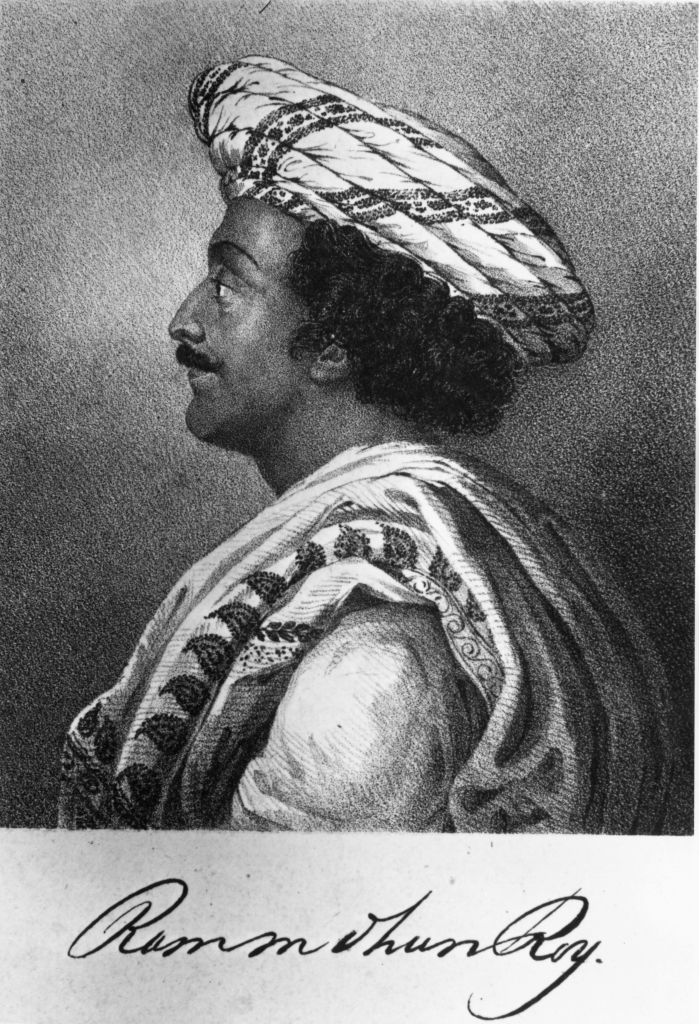
“The principle of Ahimsa, i.e., non-violence has also influenced Indian social and political movements, shaping the country’s approach to human rights. Leaders such as Mahatma Gandhi championed non-violence, social justice, and equality to the most marginalised.”
Besides the philosophical foundation, India has also maintained a clean record in promoting human rights, the NHRC secretary general chief said. Citing historical examples, he said India has in the past offered refuge to persecuted people, including the Bene Israel Jews, Pharisees, Greeks and Syrian Christians besides nationals from various other countries.
“In 1942, when the Second Great War was still on and India was still a colony, more than 15,000 Polish children found their home in the country. It was Jam Saheb, the king of Jamnagar in Gujarat who had brought them to India. Then in 1947, when India became independent, millions came to the country due to partition. Since then, those fleeing persecution in Tibet, Bangladesh (former East Pakistan), Afghanistan, Sri Lanka, Myanmar and other neighbouring countries found refuge in India.
India has demonstrated a commitment to humanitarian principles and human rights. This practice of granting asylum from the pre-Independence has enabled India to be a haven for those seeking refuge from persecution, to this day,” Lal added.
He further said that when it comes to natural calamities in any country or need for evacuation of people from war zones, India always extends help. “In fact, while evacuating Indians, we always evacuate citizens of other countries. It is the Indian ethos which gets reflected in advocating and ensuring the African Union a seat in G20 groupings last year,” Lal said.
He said it is India which works with other nations to promote climate justice, make the International Solar Alliance and the Coalition of Disaster Resilient Infrastructure seeks to protect people of the Global South. It is India’s belief in universal human rights that saw it providing vaccines to more than 100 nations during the COVID-19 pandemic. For India, service to humanity comes first and it always takes precedence over material gains, Lal added.
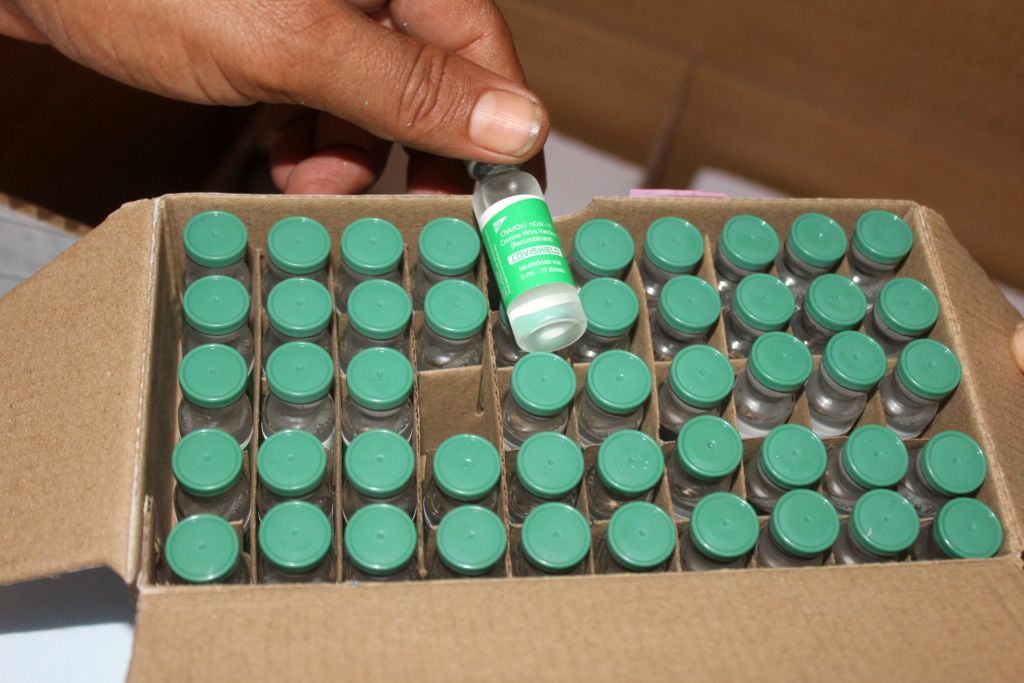
“India never attacked any country in its history. We have seen time and again that violence, terrorism and war always destroy lives of people. Innocent children and women are the worst sufferers,” Lal said, adding, “India never colonised any country. It was India and Indians who spearheaded the decolonization movement and ensured freedom not only to India and its people but also to the rest of the world.
“It was India which fought against Apartheid, stood for alleviation of poverty and protection of the environment. For India, ensuring improved quality of life and dignity of every individual is paramount. Indians always live by certain principles, which are rooted in the principle of ‘Vasudhaiva Kutumbakam’, i.e., the whole world is one family. If some people criticise India’s human rights record, I will encourage them to read, understand and know more about India and thoughts of its people as this is a country of spirituality and intellectualism. It will help them in making their own life more meaningful.”
The NHRC secretary general also said that too much credence is being given to negative statements issued by certain non-governmental organisations (NGOs) on India’s human rights record. He added that those bodies express grudge over their FCRA (Foreign Contribution Regulation Act) licenses not getting renewed on grounds of them not abiding by the law of the land.
Under FCRA law, the authorities govern receiving financial aid or contributions from abroad.
Women’s right is another area about which India has taken care over centuries. Lal said rights of women were valued in ancient Indian societies as the stories of Gargi and Maitreyee reveal. They were highly revered for their wisdom and it showed the significant role that women played in the ancient Indian society.
Later, social reformers such as Raja Ram Mohan Roy, Vidyasagar and others empowered them to live a life of dignity.
Women leaders such as Sarojini Naidu and Annie Besant also contributed by promoting women’s education, universal suffrage, democracy and public participation.
Internationally, too, India played a key role in promoting human rights. Its influence in the UDFR was pivotal. Dr Hansa Mehta, an Indian delegate, championed gender-neutral language changing ‘all men’ to ‘all human beings’ in Article 1 of the document, promoting inclusivity. Leaders such as Lakshmi N Menon furthered women’s rights, financial inclusion, and scientific progress in India.
Lal believes that it is not always the political aspect of human rights that should be taken into consideration, as it has been the case nowadays. He said India has strong constitutional and statutory bodies that promote human rights and their contribution towards making the lives of every citizen of the country better cannot be overlooked.
He said the Indian Constitution’s Preamble outlines the commitment to justice, liberty, equality, and individual growth for all. Part III of the Constitution guarantees justiciable Fundamental Rights such as equality, freedom of speech, life, and liberty. Part IV, the Directive Principles of State Policy, offers non-justiciable guidelines for social and economic welfare.
These ensure inclusive development through programmes such as housing, healthcare, toilets, clean tap water, electricity, cooking gas, free ration and education, among others, the top NHRC official added.
Landmark legislations such as the Transgender Persons Act, Mental Healthcare Act, and Rights of Persons with Disabilities Act further protect vulnerable groups, securing their basic rights and fostering a more equitable society in India. The pyramid-shaped judiciary also plays a big role by backing the fundamental and protecting human rights in India.
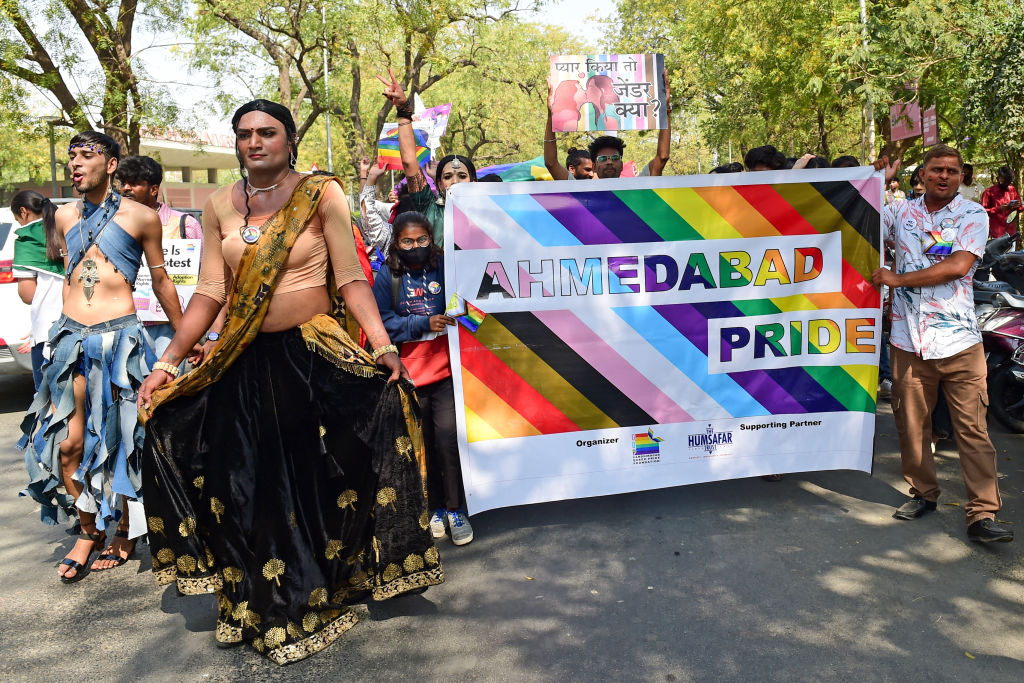
India’s human rights framework includes constitutional bodies such as the National Commission for Scheduled Castes and National Commission for Scheduled Tribes, besides various national and state commissions safeguarding rights of women, minorities, economically backward classes, children, especially-abled people, and others, coordinated by the NHRC. Besides, state human rights commissions are there at the provincial level to safeguard human rights of every individual.
The NHRC, established under the Protection of Human Rights Act, 1993, addresses violations and recommends measures for effective implementation of laws in India. It plays a crucial role in safeguarding the rights of vulnerable groups through initiatives such as HRCNet, enabling complaints in 22 languages and empowering citizens to seek redress remotely.
With its own investigative officers, special rapporteurs and monitors, core groups on different subjects and civil society partnerships, NHRC monitors and advises on human rights issues, ensuring justice and protection across the country. Abuse of children in child-care institutions, sexual exploitation of minor girls, child trafficking and bonded labour are also serious human rights abuse that the NHRC looks into.
“When violations and or challenges related to human rights comes to the notice of the commission during open house discussions, core group meetings, through research projects/ studies or during visits to states, the commission seizes the issue and through an elaborate process of consultation, advisories are prepared to redress these issues and take steps to improve the quality of life and guarantee dignity to such people,” Lal told India Weekly.
“The commission has deployed digital technology to address cases of human rights violations. Now anyone, from any place, at any time, in any language can register their complaint. This has allowed people from the farthest corner of the country to register their complaints with the commission and make their voices heard,” he added.
Recent advisories and outreach initiatives demonstrate the NHRC’s proactive role in addressing human rights issues nationwide. Through programmes such as internships, sensitisation of the police force, and collaboration with civil society organisations and human rights defenders, it educates and advocates for systemic improvements, Lal said.
He also said that through recent advisories issued on a wide range of subjects, including widows, beggars, people having mental health issues, transgender persons, and lorry drivers, the commission has also recommended systemic changes that address the challenges faced by the members of such communities.
Speaking about the NHRC’s international clout, Lal said, “As a member of the Global Alliance of National Human Rights Institutions (GANHRI), founding member of Asia Pacific Forum and the Commonwealth Forum of National Human Rights Institutions, the NHRC is fully compliant to the Paris Principles, which means it is fully independent and autonomous institution with statutory backing, necessary human resources and adequate budget, empowered to provide justice to the victims of human rights violations.”
“NHRC India is one of the most powerful national human rights institutions (NHRIs) in the world with enormous power and responsibility. Its chairperson is either a former Chief Justice or a judge of the Supreme Court of India and holds the rank of Chief Justice of India. Similarly, out of five members, two come from the judiciary — a former judge of the Supreme Court and another member from former Chief Justices of high courts, while the remaining three members are those who have knowledge, experience and body of work related to human rights. At least one member has to be a woman. These members hold the rank of a Judge of the Supreme Court.
“The orders or advice of the NHRC is respected by governments, both the federal and of the states. In case, a government is unable to accept its report due to a reason, it is to be laid on the Table of both the Houses of the parliament along with the reason. NHRC India is a model institution for many NHRIs all over the world. Let’s not forget that NHRC India has got huge experience of dealing with 1.4 billion people and there are 27 state human rights institutions. We are also building capacities of other NHRIs of the developing world by imparting training and sharing experience. Since 1999, NHRC India has been continuously accredited as ‘A’ category NHRI by the GANHRI,” he added.
Emphasising how active the commission is to protect human rights, Lal said it receives about 400 cases daily and they are examined and action is initiated.
“We take prompt action when cases come to our notice to ensure speedy redressal and provide justice. Poor people in helpless situation depend on NHRC to ensure justice and relief. NHRC India always stands with the victims of human rights violations,” he added.
Explaining how the commission is expanding its scope of action with changing times, Lal said it is also taking into consideration climate change and human rights in business.
“Climate change is a reality, and its impact is visible on the lives and livelihood of people. Also, businesses must give primacy to the rights of their employees and provide requisite facilities and working conditions so that workers can work to the best of their ability and live a dignified life,” he told India Weekly.
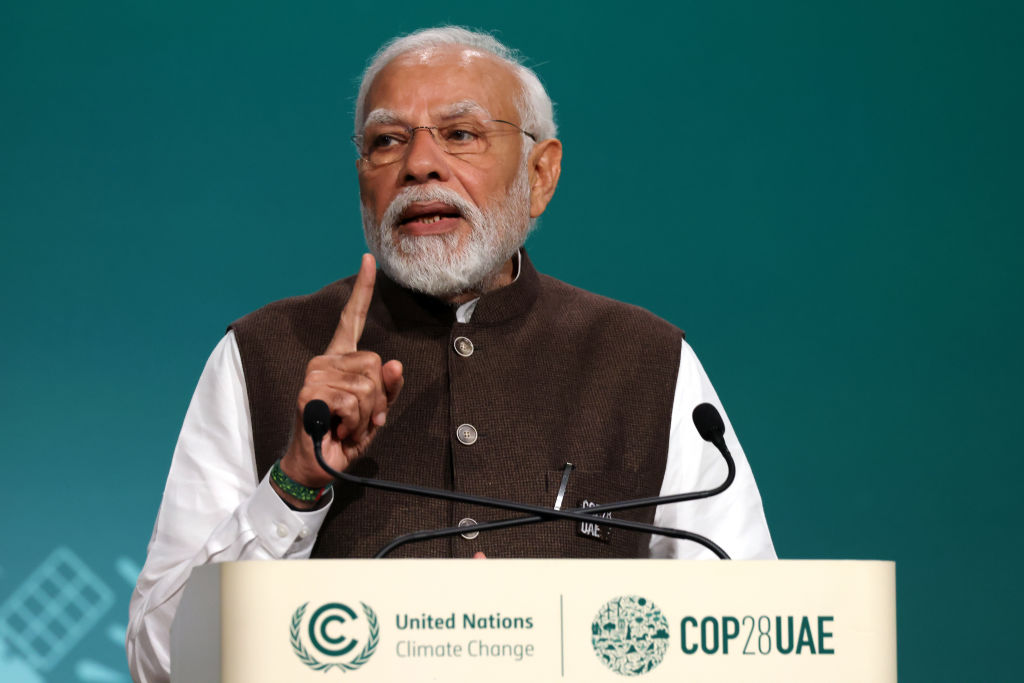
Lal said people in the world’s largest democracy are aware of their rights and human rights commissions, whether at the federal or social level, are still continuing to generate awareness on various dimensions of human rights. The unprecedented reach of the internet and social media is also playing a massive role in highlighting instances of human rights violation.
“Recent trends have shown that the number of cases registered have come down from 111,082 in 2021-22 to 76,891 in 2023-24. On the other hand, a very proactive NHRC has been taking suo motu cognizance of reported human rights violations. As a result, the number of suo motu cases taken up by the Commission has risen from 16 cases in 2021-22 to 109 cases in 2023-24. This shows the sensitivity and proactive approach of the commission in addressing injustice,” the NRHC secretary general said.
According to him, protecting human rights is a collective duty of all stakeholders including both the federal and state governments, their parastatal organisations, judiciary, civil society, NGOs, human rights defenders and vigilant media as well as people of the country. It requires a shared commitment to uphold the principles of equality, non-discrimination, and respect for human dignity.
“By fostering a culture of human rights awareness and action, we can work together to create a society where the rights of all individuals are respected and protected, ensuring a just and equitable environment for future generations,” he added.